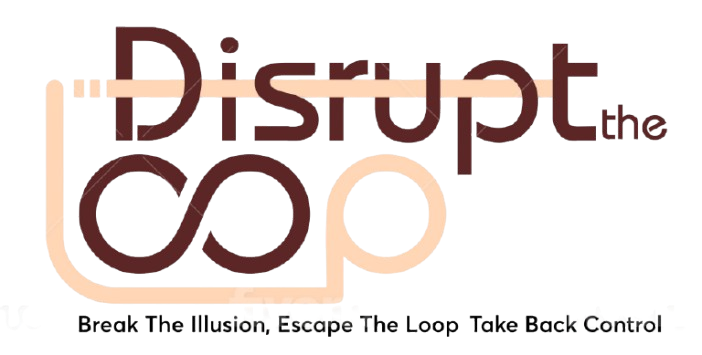The “Nice Guy” Paradox Explained
It’s one of modern dating’s most frustrating contradictions: the person who is stable, reliable, and openly interested often gets overlooked in favor of someone who creates emotional turbulence.
This isn’t about the outdated “women love bad boys” or “men chase difficult women” clichés. The real reason we sometimes reject what’s good for us comes down to a deeper psychological bias—our tendency to equate value with struggle.
The Ease = Worthless Equation
Imagine someone hands you $1,000 with no strings attached. Would you believe it’s real? Most people would hesitate. That’s because, on an unconscious level, we associate worth with effort. The same equation applies to dating:
Value = Difficulty × Outcome
When a partner is immediately available, reliable, and emotionally generous, our brains—misguided by this equation—often interpret their worth as lower than it actually is. This unconscious bias fuels dating frustrations like:
- Feeling intense attraction toward people who are emotionally unavailable.
- Getting “bored” in stable, drama-free relationships.
- Believing a relationship must be difficult to be meaningful.
This paradox doesn’t mean healthy relationships are doomed—it just means we need to recognize and rewire these faulty assumptions.
The Market Dynamics of Attraction
Attraction, like financial markets, isn’t driven by objective value but by perceived value. And just like in economics, certain factors make a person seem more “valuable” in the dating market:
✅ Volatility – Unpredictable emotional responses create engagement.
✅ Scarcity – Limited availability increases perceived worth.
✅ Uncertainty – Not knowing where you stand keeps you invested.
✅ FOMO (Fear of Missing Out) – The potential of a relationship’s “upside” keeps you hooked.
The dependable “nice guy” or “nice girl” is like a blue-chip stock—steady, reliable, but often overlooked in favor of the high-risk, high-reward investments. Logically, they’re the better choice. Emotionally? The brain craves volatility.
The Predictability Trap
Modern dating culture emphasizes compatibility: shared interests, common values, and mutual life goals. While these elements are crucial, they create a paradox: too much predictability can kill attraction.
Why? Because:
- Uncertainty creates emotional investment.
- Struggle makes the outcome feel “earned.”
- The human brain prioritizes novelty over familiarity.
This is why dating apps, with their structured formulas (swipe, match, chat, meet for coffee), sometimes fail to generate chemistry despite perfect “compatibility” on paper. There’s no challenge, no struggle—just predictability.
Breaking the Pattern: How to Rethink Attraction
For the “Nice” Person Who Keeps Getting Overlooked:
✅ Create healthy challenge. Not by playing games, but by maintaining your own interests, setting boundaries, and staying dynamic.
✅ Embrace unpredictability. Growth and change keep relationships exciting. Avoid getting stuck in predictable patterns too early.
✅ Value your own accessibility. Being emotionally available is a strength. Those who can’t appreciate it are following dysfunctional programming.
✅ Seek partners with updated programming. Look for people who recognize and value emotional stability rather than mistaking chaos for passion.
For Those Drawn to Challenging Partners:
✅ Recognize the pattern. When you feel intense attraction to someone who makes you chase, remind yourself: That’s my “value through struggle” programming kicking in.
✅ Question the excitement. Is the chemistry you feel actually attraction, or is it just anxiety disguised as passion?
✅ Build tolerance for ease. Healthy love isn’t supposed to feel like a game of emotional tug-of-war. Train yourself to accept stability without feeling the need to sabotage it.
✅ Redefine the challenge. Make the challenge about sustaining a healthy relationship, not chasing someone who won’t commit.
The Evolution of Attraction
Historically, struggle was a necessary part of survival. Resources were scarce, and choosing a mate meant securing food, shelter, and protection. The ability to “win over” a partner through effort might have once been an evolutionary advantage.
But in today’s world, these instincts often backfire. We don’t need struggle to survive, but our brains haven’t fully adapted to this new reality. The challenge is no longer securing resources—it’s breaking outdated attraction patterns that no longer serve us.
The Takeaway: Upgrade Your Attraction System
The solution isn’t choosing between predictability and passion—it’s creating relationships that offer both.
Instead of seeing attraction as a static quality (“this person is exciting” vs. “this person is boring”), start viewing it as something dynamic. The strongest relationships balance:
🔥 Challenge and security – Healthy unpredictability without chaos.
💡 Growth and stability – Excitement through shared personal evolution.
💬 Communication and mystery – A foundation of trust with room for curiosity.
By recognizing how our brains misinterpret ease as “lack of value,” we can start making smarter choices—ones that lead to real, lasting attraction instead of short-term emotional rollercoasters.
So, the next time you catch yourself dismissing someone “too nice” or obsessing over someone who keeps you guessing, pause. Ask yourself:
🔹 Am I truly attracted to them, or am I addicted to uncertainty?
🔹 Is this relationship adding to my life, or just triggering my nervous system?
🔹 Am I chasing what I actually want, or just what feels familiar?
Because real connection isn’t about struggle—it’s about finding someone who grows with you, not away from you. 🚀

